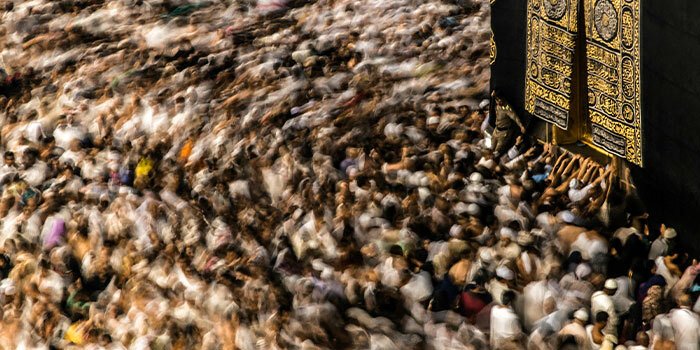When the Heart Feels Heavy
Oct 29, 2025

In Islamic theology, sin (ithm) represents any act of disobedience to Allah’s commands, whether through commission or omission. The concept of sin is fundamental to understanding human nature, spiritual development, and the path to salvation in Islam. This comprehensive guide explores the major sins (Kaba’ir) in Islam, their classification, consequences, and the mercy of Allah through repentance.

The Quran narrates how Satan (Iblis) became humanity’s eternal enemy after refusing to prostrate before Adam (peace be upon him). When expelled from Allah’s presence, Satan requested respite to mislead mankind until the Day of Judgment. Allah granted this request, and Satan declared his challenge:
فَبِعِزَّتِكَ لَأُغْوِيَنَّهُمْ أَجْمَعِينَ إِلَّا عِبَادَكَ مِنْهُمُ الْمُخْلَصِينَ
“By Your might, I will surely mislead them all, except Your chosen servants among them.” (Quran 38:82-83)
Satan employs a systematic approach to lead humans astray, as described in the Quran:
لَأَقْعُدَنَّ لَهُمْ صِرَاطَكَ الْمُسْتَقِيمَ ثُمَّ لَآتِيَنَّهُمْ مِنْ بَيْنِ أَيْدِيهِمْ وَمِنْ خَلْفِهِمْ وَعَنْ أَيْمَانِهِمْ وَعَنْ شَمَائِلِهِمْ وَلَا تَجِدُ أَكْثَرَهُمْ شَاكِرِينَ
“I will surely sit in wait for them on Your straight path. Then I will come to them from before them and from behind them and on their right and on their left, and You will not find most of them grateful to You.” (Quran 7:16-17)
Satan’s strategy involves:

The most comprehensive definition of sin comes from Prophet Muhammad (peace be upon him):
Arabic Text:
وَالْإِثْمُ مَا حَاكَ فِي صَدْرِكَ، وَكَرِهْتَ أَنْ يَطَّلِعَ عَلَيْهِ النَّاسُ
“Sin is what troubles your conscience and what you would dislike people to know about.”
(Sahih Muslim: 6195)
This definition emphasizes the internal moral compass that Allah has placed within every human being.

Major sins are defined as transgressions that:
Minor sins are lesser transgressions that do not carry the severe consequences of major sins. These include:
Important Note: Persistent minor sins can accumulate to become major sins if not addressed through repentance.

Definition: Shirk is the gravest sin in Islam, involving the worship of anyone or anything besides Allah or alongside Allah.
Quranic Evidence:
إِنَّ اللَّهَ لَا يَغْفِرُ أَنْ يُشْرَكَ بِهِ وَيَغْفِرُ مَا دُونَ ذَٰلِكَ لِمَنْ يَشَاءُ ۚ وَمَنْ يُشْرِكْ بِاللَّهِ فَقَدِ افْتَرَىٰ إِثْمًا عَظِيمًا
“Indeed, Allah does not forgive that partners be associated with Him, but forgives what is less than that for whom He wills. And whoever associates partners with Allah has certainly fabricated a tremendous sin.” (Quran 4:48)
Types of Shirk:
Consequences: Eternal punishment in Hell if not repented from before death.
Quranic Prohibition:
وَلَا تَقْتُلُوا النَّفْسَ الَّتِي حَرَّمَ اللَّهُ إِلَّا بِالْحَقِّ
“And do not kill the soul which Allah has forbidden, except by right.” (Quran 17:33)
Severity in Islam:
مَنْ قَتَلَ نَفْسًا بِغَيْرِ نَفْسٍ أَوْ فَسَادٍ فِي الْأَرْضِ فَكَأَنَّمَا قَتَلَ النَّاسَ جَمِيعًا
“Whoever kills a soul unless for a soul or for corruption in the land – it is as if he had slain mankind entirely.” (Quran 5:32)
Prophetic Warning:
لَا يَحِلُّ دَمُ امْرِئٍ مُسْلِمٍ يَشْهَدُ أَنْ لَا إِلَهَ إِلَّا اللَّهُ وَأَنِّي رَسُولُ اللَّهِ إِلَّا بِإِحْدَى ثَلَاثٍ
“The blood of a Muslim who confesses that there is no god but Allah and that I am the Messenger of Allah cannot be shed except in three cases…” (Sahih Bukhari: 17)
Hadith Evidence:
اجْتَنِبُوا السَّبْعَ الْمُوبِقَاتِ الشِّرْكُ بِاللَّهِ وَالسِّحْرُ
“Avoid the seven destructive sins: associating partners with Allah, and magic…” (Sahih Bukhari: 28)
Why Magic is Forbidden:
Prophetic Warning:
بَيْنَ الرَّجُلِ وَبَيْنَ الشِّرْكِ وَالْكُفْرِ تَرْكُ الصَّلَاةِ
“Between a man and shirk and kufr is the abandonment of prayer.” (Sahih Muslim: 147)
Quranic Emphasis:
فَوَيْلٌ لِلْمُصَلِّينَ الَّذِينَ هُمْ عَنْ صَلَاتِهِمْ سَاهُونَ
“So woe to those who pray but are heedless of their prayer.” (Quran 107:4-5)
Quranic Condemnation:
الَّذِينَ يَأْكُلُونَ الرِّبَا لَا يَقُومُونَ إِلَّا كَمَا يَقُومُ الَّذِي يَتَخَبَّطُهُ الشَّيْطَانُ مِنَ الْمَسِّ
“Those who consume interest cannot stand except as one stands who is being beaten by Satan into insanity.” (Quran 2:275)
Prophetic Curse:
لَعَنَ رَسُولُ اللَّهِ آكِلَ الرِّبَا وَمُؤْكِلَهُ وَكَاتِبَهُ وَشَاهِدَيْهِ
“The Messenger of Allah cursed the one who consumes riba, the one who pays it, the one who records it, and the two who witness it.” (Sahih Muslim: 3881)
Quranic Prohibition:
يَا أَيُّهَا الَّذِينَ آمَنُوا إِنَّمَا الْخَمْرُ وَالْمَيْسِرُ وَالْأَنْصَابُ وَالْأَزْلَامُ رِجْسٌ مِنْ عَمَلِ الشَّيْطَانِ فَاجْتَنِبُوهُ
“O you who believe! Intoxicants, gambling, stone altars, and divining arrows are abominations of Satan’s handiwork. So avoid them.” (Quran 5:90)
Social Consequences:
Quranic Condemnation:
وَلَا يَغْتَبْ بَعْضُكُمْ بَعْضًا ۚ أَيُحِبُّ أَحَدُكُمْ أَنْ يَأْكُلَ لَحْمَ أَخِيهِ مَيْتًا فَكَرِهْتُمُوهُ
“And do not backbite one another. Would one of you like to eat the flesh of his dead brother? You would detest it.” (Quran 49:12)
Prophetic Definition of Backbiting:
أَتَدْرُونَ مَا الْغِيبَةُ قَالُوا اللَّهُ وَرَسُولُهُ أَعْلَمُ قَالَ ذِكْرُكَ أَخَاكَ بِمَا يَكْرَهُ
“Do you know what backbiting is?” They said, “Allah and His Messenger know best.” He said, “It is your mentioning about your brother what he dislikes.” (Sahih Muslim: 6265)

Quranic Prohibition:
وَلَا تَقْرَبُوا الزِّنَا ۖ إِنَّهُ كَانَ فَاحِشَةً وَسَاءَ سَبِيلًا
“And do not approach adultery. Indeed, it is ever an immorality and is evil as a way.” (Quran 17:32)
Quranic Warning:
إِنَّ الَّذِينَ يَأْكُلُونَ أَمْوَالَ الْيَتَامَىٰ ظُلْمًا إِنَّمَا يَأْكُلُونَ فِي بُطُونِهِمْ نَارًا
“Indeed, those who devour the property of orphans unjustly are only consuming into their bellies fire.” (Quran 4:10)
Quranic Condemnation:
وَمَنْ يُوَلِّهِمْ يَوْمَئِذٍ دُبُرَهُ إِلَّا مُتَحَرِّفًا لِقِتَالٍ أَوْ مُتَحَيِّزًا إِلَىٰ فِئَةٍ فَقَدْ بَاءَ بِغَضَبٍ مِنَ اللَّهِ
“And whoever turns his back to them on such a day, unless swerving for battle or joining another company, has certainly returned with anger from Allah.” (Quran 8:16)

The Darkening of the Heart:
كَلَّا ۖ بَلْ رَانَ عَلَىٰ قُلُوبِهِمْ مَا كَانُوا يَكْسِبُونَ
“No! Rather, their hearts have been stained by what they used to earn.” (Quran 83:14)
Prophetic Description:
إِنَّ الْعَبْدَ إِذَا أَخْطَأَ خَطِيئَةً نُكِتَتْ فِي قَلْبِهِ نُكْتَةٌ سَوْدَاءُ
“When a servant commits a sin, a black spot is marked on his heart.” (Sunan Tirmidhi: 3334)

Loss of Sustenance:
وَمَا يُحْرَمُ الرِّزْقَ إِلَّا بِالذَّنْبِ
“Nothing deprives one of sustenance except sin.” (Sunan Ibn Majah: 90)
Constricted Life:
وَمَنْ أَعْرَضَ عَنْ ذِكْرِي فَإِنَّ لَهُ مَعِيشَةً ضَنْكًا
“But whoever turns away from My remembrance – indeed, he will have a depressed life.” (Quran 20:124)
Major sins create social discord through:

Despite the severity of major sins, Allah’s mercy encompasses all:
قُلْ يَا عِبَادِيَ الَّذِينَ أَسْرَفُوا عَلَىٰ أَنْفُسِهِمْ لَا تَقْنَطُوا مِنْ رَحْمَةِ اللَّهِ ۚ إِنَّ اللَّهَ يَغْفِرُ الذُّنُوبَ جَمِيعًا
“Say, ‘O My servants who have transgressed against themselves, do not despair of the mercy of Allah. Indeed, Allah forgives all sins.'” (Quran 39:53)

The Quranic Model:
وَالَّذِينَ إِذَا فَعَلُوا فَاحِشَةً أَوْ ظَلَمُوا أَنْفُسَهُمْ ذَكَرُوا اللَّهَ فَاسْتَغْفَرُوا لِذُنُوبِهِمْ
“And those who, when they commit an immorality or wrong themselves, remember Allah and seek forgiveness for their sins.” (Quran 3:135)
Elements of True Repentance:
Prophetic Hadith:
لَلَّهُ أَشَدُّ فَرَحًا بِتَوْبَةِ عَبْدِهِ حِينَ يَتُوبُ إِلَيْهِ مِنْ أَحَدِكُمْ كَانَ عَلَى رَاحِلَتِهِ بِأَرْضِ فَلَاةٍ
“Allah is more pleased with the repentance of His servant than one of you would be if he were riding his mount in the wilderness…” (Sahih Muslim: 6615)

Prophetic Supplication:
اللَّهُمَّ إِنِّي أَعُوذُ بِكَ أَنْ أُشْرِكَ بِكَ وَأَنَا أَعْلَمُ، وَأَسْتَغْفِرُكَ لِمَا لَا أَعْلَمُ
“O Allah, I seek refuge with You from associating anything with You knowingly, and I seek Your forgiveness for what I do not know.” (Musnad Ahmad, 4/403)

Prophetic Promise:
الصَّلَوَاتُ الْخَمْسُ، وَالْجُمُعَةُ إِلَى الْجُمُعَةِ، وَرَمَضَانُ إِلَى رَمَضَانَ، مُكَفِّرَاتٌ مَا بَيْنَهُنَّ إِذَا اجْتَنَبَ الْكَبَائِرَ
“The five daily prayers, Friday to Friday, and Ramadan to Ramadan are expiations for what is between them, provided major sins are avoided.” (Sahih Muslim: 449)
إِنَّ الْحَسَنَاتِ يُذْهِبْنَ السَّيِّئَاتِ
“Indeed, good deeds remove evil deeds.” (Quran 11:114)

In today’s world, major sins may manifest in new forms:
Muslims facing contemporary challenges should:

The concept of major sins in Islam serves not to despair believers but to guide them toward righteousness and spiritual purification. While these transgressions carry severe consequences, Allah’s infinite mercy provides a path to redemption through sincere repentance, good deeds, and continued faith.
The key lessons from this comprehensive study include:
رَبَّنَا لَا تُؤَاخِذْنَا إِنْ نَسِينَا أَوْ أَخْطَأْنَا ۚ رَبَّنَا وَلَا تَحْمِلْ عَلَيْنَا إِصْرًا كَمَا حَمَلْتَهُ عَلَى الَّذِينَ مِنْ قَبْلِنَا ۚ رَبَّنَا وَلَا تُحَمِّلْنَا مَا لَا طَاقَةَ لَنَا بِهِ ۖ وَاعْفُ عَنَّا وَاغْفِرْ لَنَا وَارْحَمْنَا
“Our Lord, do not impose blame upon us if we have forgotten or erred. Our Lord, and lay not upon us a burden like that which You laid upon those before us. Our Lord, and burden us not with that which we have no ability to bear. And pardon us; and forgive us; and have mercy upon us.” (Quran 2:286)
May Allah protect us all from major sins and guide us to the straight path. Ameen.